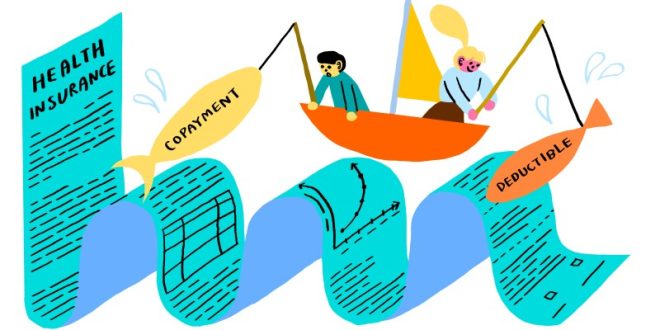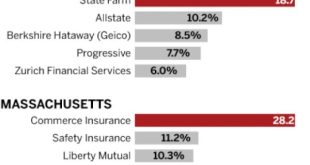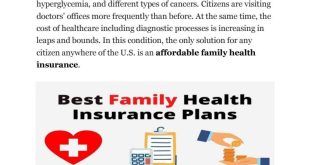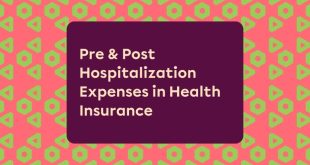Buyclomidonline.shop – Catastrophic Health Insurance For Emergencies. If you’re lucky, you’ve probably never had to use critical illness insurance (sometimes called catastrophic illness insurance). You may not have even heard of it. In the event of a serious health event such as cancer, heart attack or stroke, critical illness insurance can be the only thing standing between you and financial ruin.
Many people assume they are fully protected under a standard health insurance plan, but the exorbitant costs of treating life-threatening illnesses usually exceed any plan’s coverage. Read on to learn more about critical illness insurance and whether it is something you and your family should consider.
Catastrophic Health Insurance For Emergencies
As life expectancy in the United States continues to rise, insurance brokers are finding ways to make sure Americans can afford the privilege of aging. Critical illness insurance was created in 1996 when people realized that a heart attack or stroke could expose the patient to insurmountable medical costs.
Critical Illness Insurance: What Is It? Who Needs It?
“Even with excellent medical insurance, one serious illness can be a huge financial burden,” says certified financial planner Jeff Rossi, former director of talent development at Santander Bank in New York. Critical illness insurance offers benefits if one or more of the following medical emergencies occur:
Because these illnesses require extensive medical care and treatment, their costs can quickly exceed the cost of a family insurance policy. If you don’t have an emergency fund or health savings account (HSA), paying these bills out of pocket will be even more difficult.
Many people now opt for high-deductible health plans, which can be something of a double-edged sword: consumers benefit from relatively affordable monthly premiums, but if they become seriously ill, they can find themselves in a very difficult situation.
Critical illness insurance can cover costs not covered by traditional insurance. The money can also be used to cover non-medical costs related to the illness, including transportation, child care, etc. Typically, the insured person receives a lump sum to cover these costs. Coverage limits vary – depending on your policy, you may qualify for amounts ranging from a few thousand dollars to $100,000. Many factors affect the price of a policy, including the amount and extent of coverage, the gender, age and health of the insured person, and the family’s medical history.
Health Insurance Terms To Know As Open Enrollment Begins
There are exceptions to critical illness insurance. Some types of cancer may not be covered, although chronic diseases are often exempt as well. You may not be paid if your disease returns or if you have a second stroke or heart attack. Some insurance policies may end when the insured person reaches a certain age. Therefore, as with any form of insurance, you should read your policy carefully. The last thing you want to worry about is your emergency plan.
You can buy critical illness insurance yourself or through your employer (many offer it as a voluntary benefit). You can also add it as a rider to your existing life insurance plan, which can be a cheaper option that offers the same benefits.
One reason companies are so eager to add these plans is because they realize that employees are concerned about high expenses on a high-deductible plan. Unlike other health care benefits, employees usually pay the entire cost of plans to treat serious illnesses. This saves money for both companies and employees.
The big advantage of critical illness insurance is that the money can be spent on a variety of things, such as:
State Of U.s. Health Insurance In 2022: Biennial Survey
Part of what makes these policies attractive is that they usually don’t cost much, especially if you can get them through your employer. Some smaller plans cost as little as $25 a month, which seems like a bargain compared to the cost of a typical low-deductible health insurance policy.
Some health care experts are skeptical that they actually represent a good deal for consumers. The overarching concern is that they will only reimburse you for a somewhat limited range of conditions. If your diagnosis doesn’t fit the definition of a covered illness, you’re out of luck.
The more illnesses your plan covers, the more you will pay in premiums. A 45-year-old woman with an individual plan that covers only cancer treatment might pay $40 a month for $25,000 of coverage. The same woman can pay twice as much per month if she expands her insurance coverage to include coronary heart disease, organ transplants and certain other conditions.
Like all insurance policies, critical illness policies are also subject to many terms. It does not only cover the conditions listed in the policy, but only covers it in the specific circumstances outlined in the policy. For example, a diagnosis of cancer may not be enough to trigger a policy payout if the cancer has not spread beyond the time of initial detection or is not life-threatening. A diagnosis of stroke may not result in benefits unless the neurological damage lasts longer than 30 days. Other restrictions may include a certain number of days the policyholder must be sick or survive after diagnosis.
Catastrophic Health Insurance: Plans, Coverage, And More
Seniors should be especially careful about these rules. Some policies may have payout limits where people over a certain age (eg 75) do not qualify for a payout, or may have so-called ‘age-off schedules’, meaning that the potential payout from insurance decreases with age.
It is important to note that many of these policies do not offer guaranteed payment. For example, a typical insurance company discloses that in its critical illness policy, “the expected benefit ratio for this policy is 60%. This ratio is the ratio of future premiums that the company expects to repay as benefits, averaged over all persons who covered by the policy.” If 60% of the premiums are eventually paid in claims, 40% of the premiums will not be paid at all.
Experts point out that there are alternative forms of insurance without all these restrictions. For example, disability insurance provides income when you are unable to work due to health reasons, and financial protection is not limited to a narrow set of conditions. This is a particularly good solution for anyone whose long absence from work will significantly lower their standard of living.
Consumers with a high-deductible plan can also contribute to a health savings account or a flexible spending account (FSA), both of which offer tax benefits when used for qualified expenses.
What Is Catastrophic Health Insurance?
You can also create a separate savings account to cover non-medical expenses that may arise if, for example, you have cancer and take time off work.
Critical illness insurance is a policy that provides an immediate, lump sum benefit that you can use to cover expenses not covered by other insurance. You can buy it yourself or through your employer, or add it to your personal life insurance plan.
Critical illness insurance can help cover bills associated with life-threatening illnesses such as heart attack, stroke or cancer. At your discretion, your critical illness policy benefit can cover anything from medical expenses not covered by your health insurance policy, to household utility bills, rent or mortgage payments, or grocery bills.
Coverage is typically limited to medical crises, including heart attack, stroke, kidney failure, cancer, paralysis, and a few others. Each plan has a specific list, which varies from plan to plan.
What Is Catastrophic Health Insurance, And Is It Worth It?
Critical illness cover provides a lump sum of money if you are diagnosed with a covered condition. The payout can be used for any needs, including non-medical expenses such as mortgage payments, transportation or equipment, or even time off during recovery. Premiums are low and affordable compared to those of a typical health insurance policy.
Some types of cancer may not be covered by insurance, and chronic conditions are often excluded. If a critical illness recurs, such as a second stroke or heart attack, you may not receive your payment. Coverage may end or be reduced once the insured person reaches a certain age. You need to pay attention to the specific circumstances in which your policy covers a given condition, as some critical illness policies have narrow limits.
Since medical bills are a common cause of bankruptcy in the United States, it is worth taking the time to research this type of policy, especially if you have a family history of any of the conditions mentioned above. Critical illness insurance can ease some of your financial worries if you become ill enough to work. This provides some flexibility because you can use the money you withdraw however you want to cover a wide range of potential needs.

However, this type of insurance has some disadvantages and caveats. Even if you have a family history of a particular condition, you may find that other types of insurance will better meet your needs. As with all types of insurance, you should shop around for the policy that best suits your needs and situation. Disability insurance may be a better choice because benefits are more comprehensive and pay out over a longer period of time.
Read Also: What’s The Average Cost Of Health Insurance In The Us?
Can I Use My Health Insurance Plan Outside Of My State?
Require authors to use primary sources to support their work. These include white papers, government data, original reports and interviews with industry experts. Where appropriate, we also refer to original research from other reputable publishers. You can learn
Cheap catastrophic health insurance, catastrophic health insurance coverage, catastrophic health insurance nc, catastrophic only health insurance, catastrophic health insurance colorado, catastrophic health insurance plans, best catastrophic health insurance, kaiser catastrophic health insurance, aflac catastrophic health insurance, catastrophic health insurance cost, catastrophic health insurance, catastrophic health insurance california
- Washington Mutual Car Insurance - October 19, 2023
- Use Of Life Insurance In Estate Planning - October 19, 2023
- Best Health Insurance Plans For Families - September 25, 2023
 INSURANCE buyclomidonline.shop – INSURANCE
INSURANCE buyclomidonline.shop – INSURANCE





